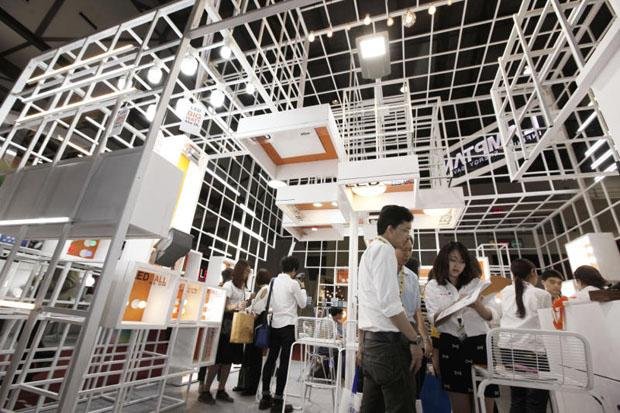
The government may offer special corporate income tax exemption for 10-15 years to major industries located in proposed "super clusters".
After Tuesday's weekly cabinet meeting, Deputy Prime Minister Somkid Jatusripitak said the Finance Ministry was set to offer additional tax incentives to industries in the super clusters.
The super clusters have been designated as investment centres for high-tech industries.
NOTE: More details in graphic below
Mr Somkid said the government would also develop industrial clusters for both upstream and downstream industries, small and medium-sized enterprises (SMEs) and university research and development (R&D) activities.
Top researchers, both Thai and foreign, will enjoy personal income tax exemption, while foreign researchers in the super clusters will be granted permanent residency.
The Board of Investment (BoI) last week approved the promotion of high-tech industries in clusters as a way of attracting more investment and boosting special economic zones.
Projects in industrial clusters will be divided into two categories.
One will be super clusters integrating six industrial clusters -- automotive; food processing; environmentally friendly petrochemicals and chemicals; medical services; digital; and electronics, electrical appliances and telecommunications equipment.
The other category will comprise two normal clusters for agricultural processing and garments and textiles.
Industry Minister Atchaka Sibunruang said the cabinet on Tuesday also approved placing the super clusters in nine provinces.
The food processing, medical services and digital super clusters will be located in Chiang Mai and Phuket, while the automotive, petrochemicals and chemicals, and electronics, electrical appliances and telecommunications equipment super clusters will be located in seven other provinces.
Industries in super clusters will be entitled to full corporate income tax exemption for eight years and a 50% reduction for five years after that.
The two normal clusters of agricultural processing industry and textiles and garments will be given full corporate tax exemption for three to eight years and a 50% reduction for five years after that, plus exemption on import tariffs for machinery.
The two normal clusters will be scattered in selected provinces nationwide.
In a related development, Japanese Ambassador Shiro Sadoshima confirmed his government would keep pushing Japanese SME investment in Thailand, which he said could be used as a springboard for other Asean investment.
Speaking Tuesday at an event entitled "Thailand's Industrial Development: Policy and Directions", held at the Queen Sirikit National Convention Center and attended by representatives of 200 Japanese businesses, he said his government supported companies wanting to invest in Asean in general and Thailand in particular, especially in terms of R&D.
"The Japanese government wants Thailand to be a new high-tech machinery hub for Asean, as it already is a highly skilled automotive hub," he said.
Mr Sadoshima said major Japanese car makers including Toyota, Mazda and Kubota had already invested in high-tech machinery in Thailand, and he believes more companies will soon increase their investment here.
"We're very satisfied with the BoI's investment packages and the Thai government's economic stimulus packages," he said.
"We believe they will bring more foreign investors to Thailand including Japanese."
Setsuo Iuchi, director-general for regional economic and industrial policy in Japan's Economy, Trade and Industry Ministry, said Thailand would remain an important Asean investment destination for Japanese investors.
Integration of the Asean Economic Community late this year will be a great opportunity for Japanese investors to expand their investment in Asean, he said.
"We're still interested in Thailand and want Japanese SMEs to invest in Thailand as well as other Asean members," Mr Iuchi said.
"We believe the Thai government's policies could help to boost the number of Japanese investors in Thailand eventually."
